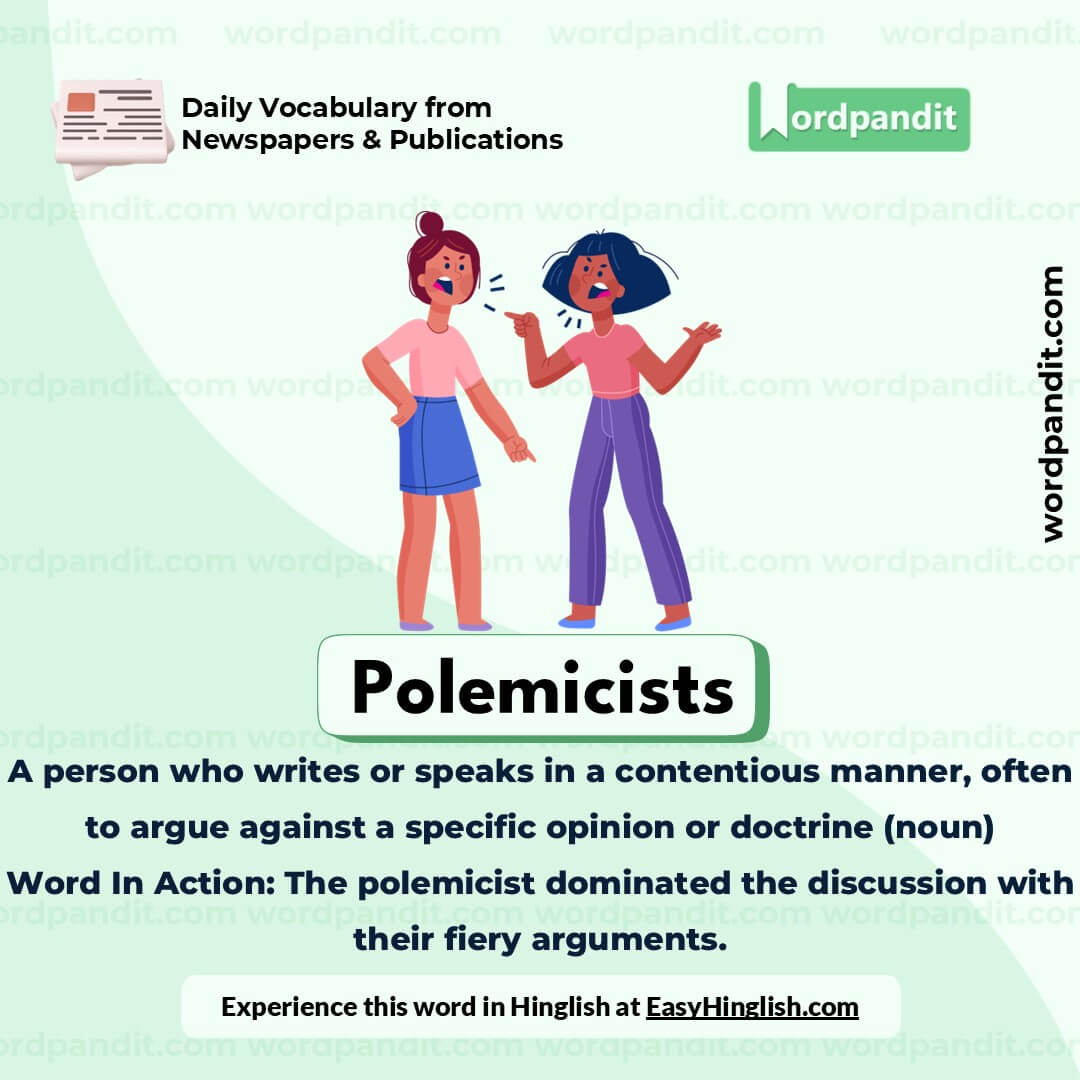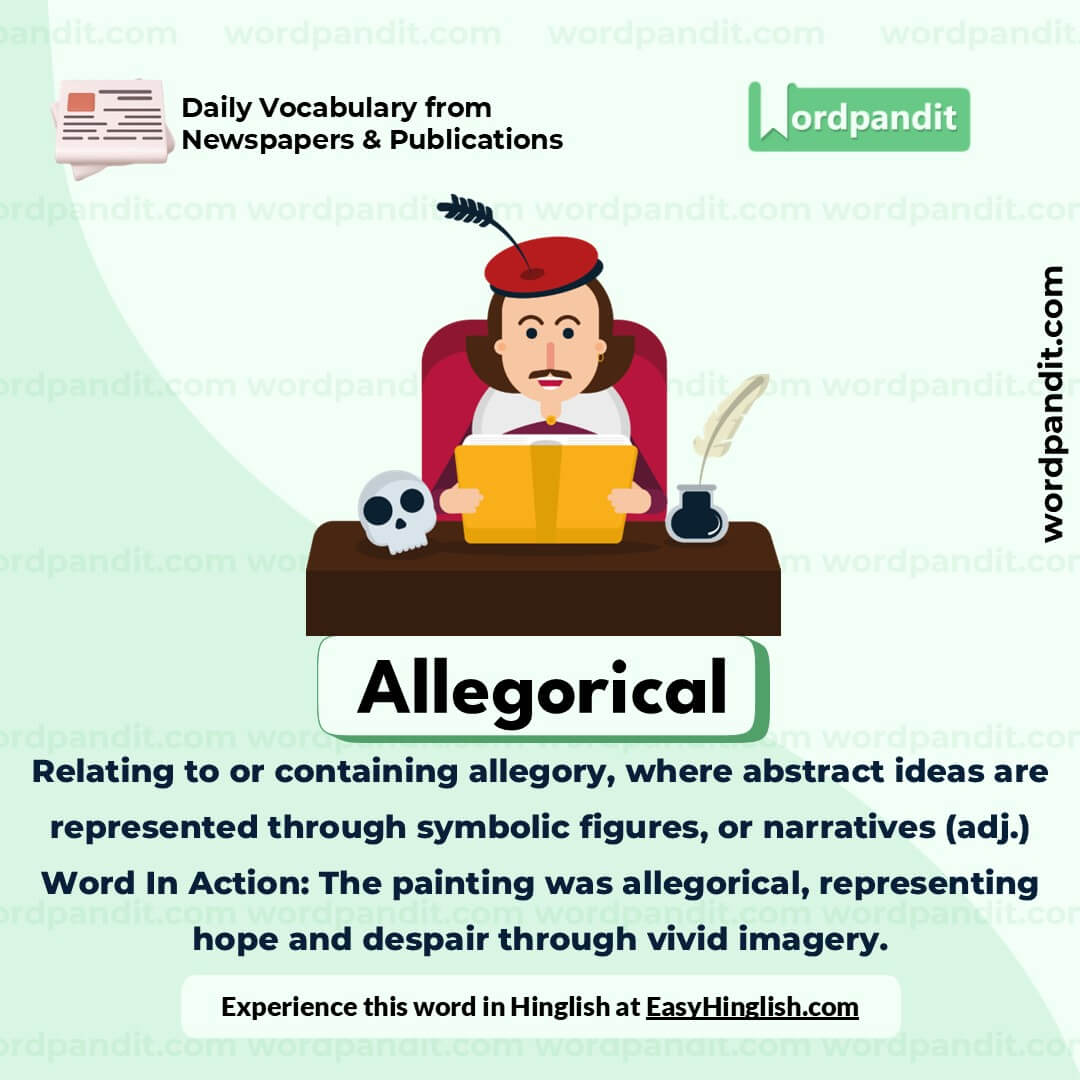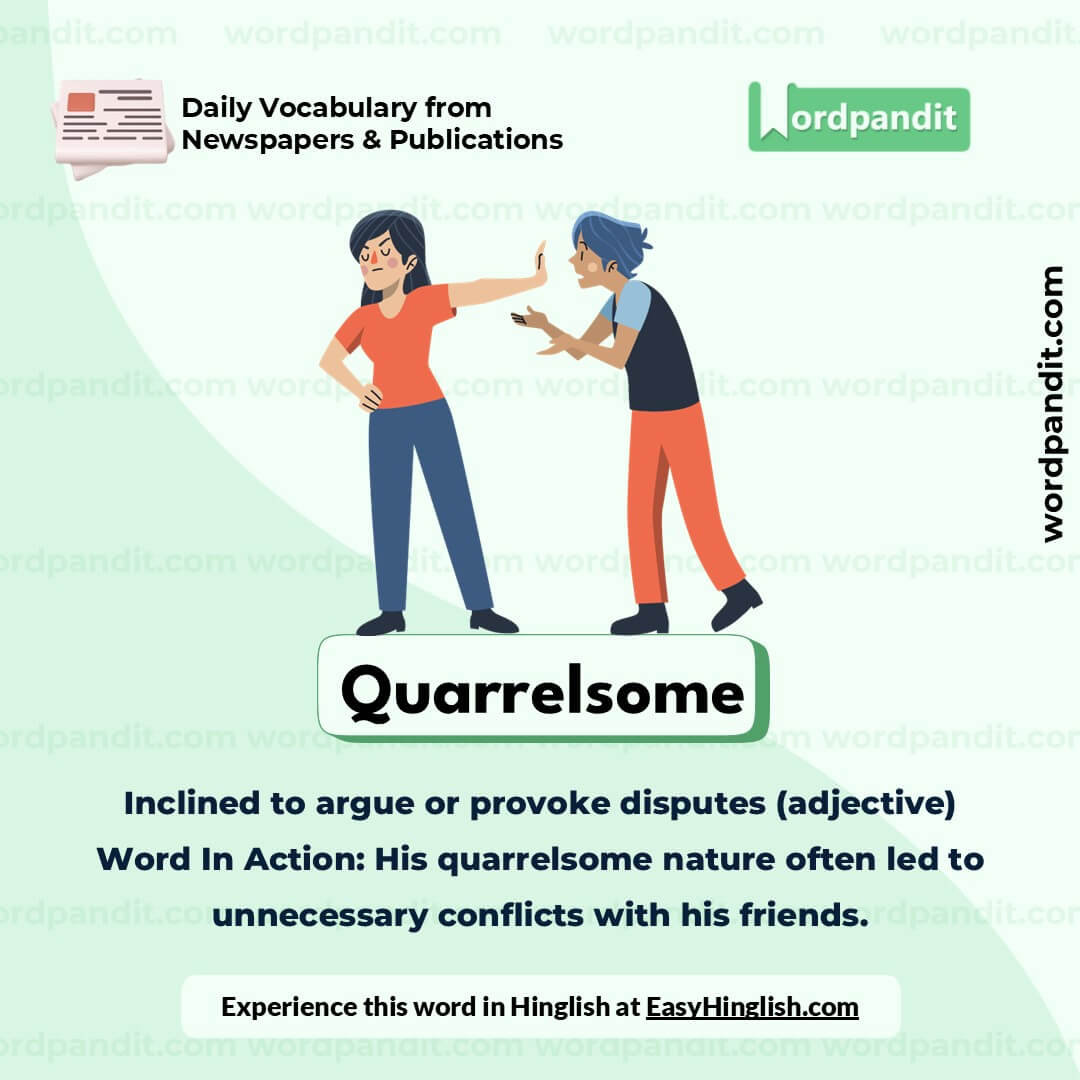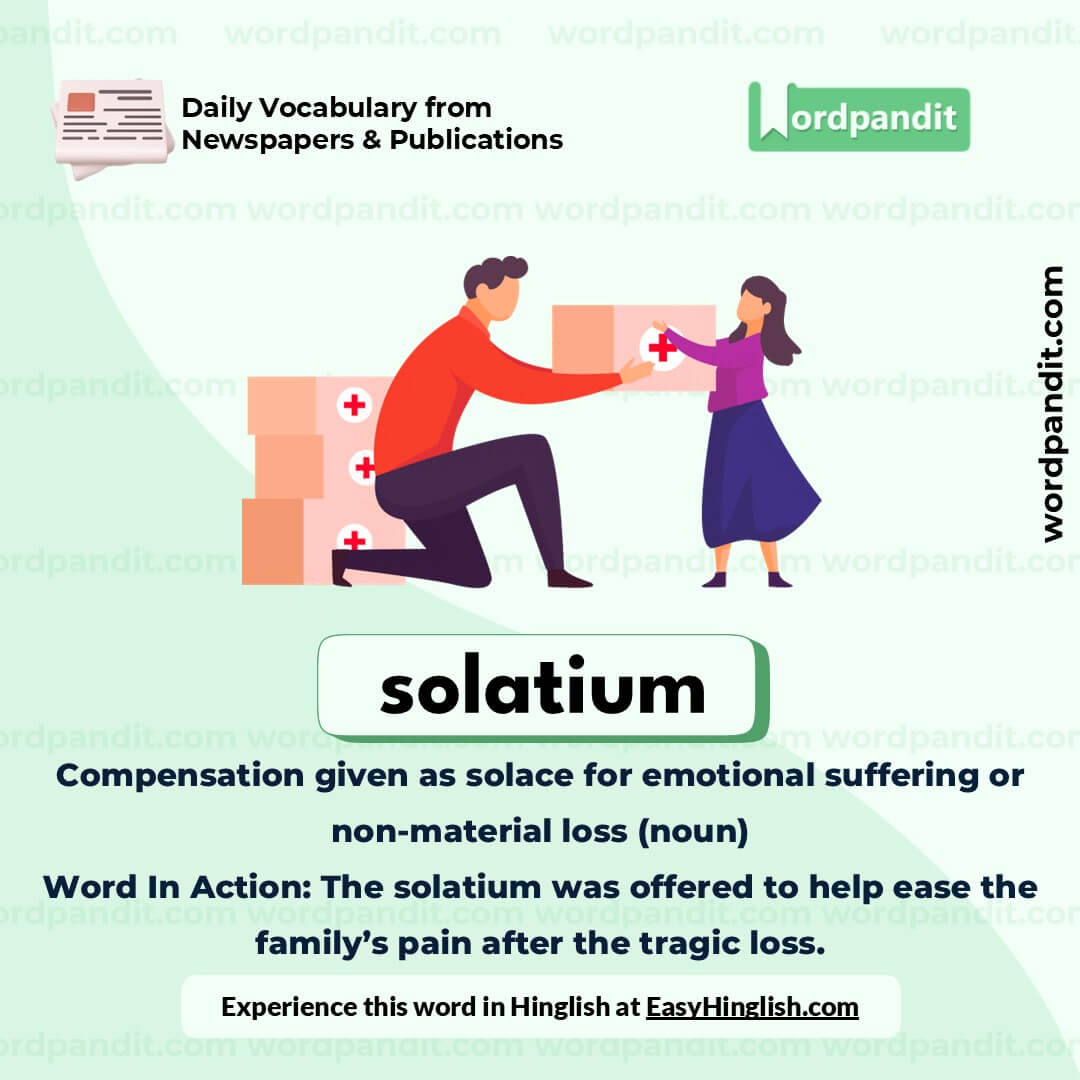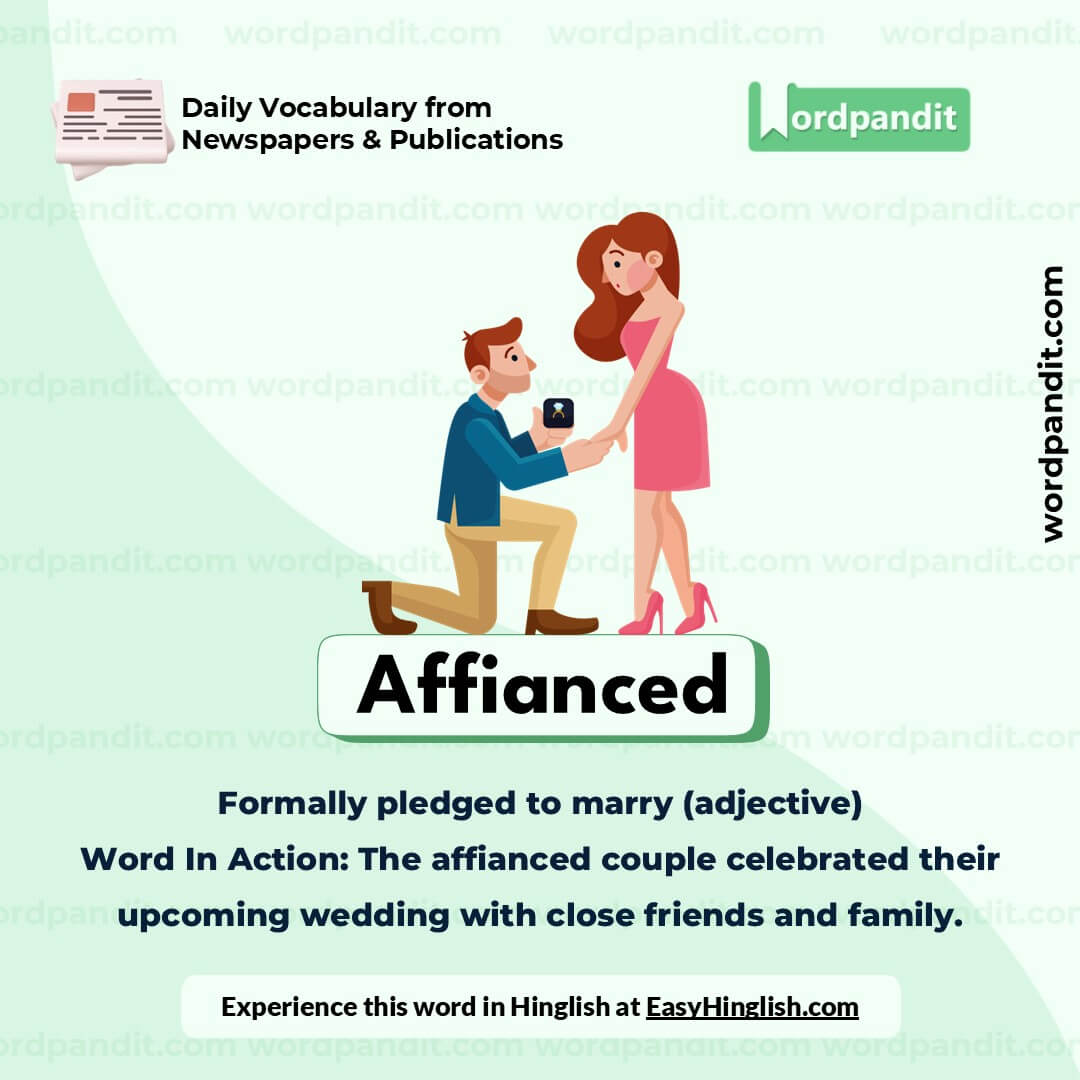Daily Vocabulary from International Newspapers and Publications
Expand Your Vocabulary with Wordpandit’s Global Vocabulary Hub
At Wordpandit, we are committed to helping you develop a truly global vocabulary by drawing from some of the most respected international publications. This section is designed to keep you ahead of the curve by introducing you to words that define global conversations and trends.
The Power of Global Sources
To help you think and communicate on a global scale, we curate vocabulary from renowned international sources, such as:
- The New York Times
- The Washington Post
- BBC
- The Guardian
- The Economist
- Scientific American
- Psychology Today
- And many more...
Stay Global, Stay Competitive
Our daily updates from international publications ensure you are consistently exposed to new words that reflect global news and developments, making sure your vocabulary is not only current but also globally relevant.
Enhance Your Global Perspective
Whether you’re preparing for international exams, aiming to excel in global business communication, or want to enhance your language skills for personal growth, Wordpandit offers the resources you need to thrive in a global context.
Effective Learning, Global Reach
Our learning methodology combines global examples, memory aids, and interactive activities, allowing you to internalize new words effectively and apply them in real-world scenarios.
Begin Your Global Vocabulary Journey Now!
Why Choose Wordpandit?
Practical Learning: Focus on words you'll actually encounter in real-world reading, enhancing your comprehension and communication skills.
Diverse Content: From current affairs to scientific breakthroughs, our varied sources expose you to vocabulary across multiple domains.
Effortless Integration: Make Wordpandit a part of your daily routine. Just a few minutes each day can significantly boost your lexicon over time.
Your Path to Vocabulary Mastery
- Visit our Daily Vocabulary section regularly
- Explore new words and their usage in context
- Practice incorporating these words into your own writing and speech
- Track your progress as your vocabulary expands
Start Your Journey Today
Embark on your vocabulary enhancement journey with Wordpandit. By consistently engaging with our daily posts, you'll build a robust vocabulary that serves you well in academic, professional, and personal contexts.
Remember, a word a day keeps linguistic limitations at bay. Make Wordpandit your daily companion in the quest for vocabulary excellence!
WORD-1: Polemicists
Context:
"But we and, much more importantly, our blatant, billboard-sized injunctions were dismissed by the ever-so-polite cognoscenti as the hyperbolic musings of clickbait-seeking polemicists who had little understanding of the true nature of fascism." - Aljazeera
Explanatory Paragraph:
Imagine someone who thrives on debates and arguments, often taking strong, controversial stances on various issues—that’s a polemicist. These individuals engage in critical or disputatious discussions, usually to provoke thought or challenge existing beliefs.
Meaning: A person who writes or speaks in a contentious manner, often to argue against a specific opinion or doctrine (noun)
Pronunciation: puh-LEM-uh-sist
Difficulty Level: ⭐⭐⭐⭐ (Advanced)
Etymology: From Greek polemos meaning "war" or "conflict"
Synonyms & Antonyms:
Synonyms: debater, critic, disputant, antagonist
Antonyms: mediator, peacemaker, conciliator
Usage Examples:
- The columnist was known as a polemicist, unafraid to challenge popular opinions.
- As a polemicist, she wrote extensively against the policies she deemed unjust.
- The debate escalated quickly, with each side accusing the other of being polemicists rather than rational thinkers.
- Historical polemicists often influenced societal changes by questioning established norms.
Cultural Reference:
"A polemicist is often seen as a provocateur, aiming to ignite thought rather than merely settle disputes." - Adapted from contemporary critiques on public intellectuals
Think About It:
Can polemicists help advance society by challenging norms, or do they create unnecessary division?
Quick Activity:
Write a brief argumentative statement on a topic of your choice. Think like a polemicist—take a bold stance and support it.
Memory Tip:
Think of "polemicist" as "political + chemist"—someone who mixes ideas to create intellectual reactions.
Real-World Application:
Understanding the role of polemicists can help in analyzing persuasive essays, opinion pieces, and debates critically.
WORD-2: Allegorical
Context:
"IN 1961, on the heels of that lecture, a children’s book came out – The Phantom Tollbooth by Norton Juster, a funny, PUNNY allegorical fantasy that made the same argument but in a way that captivated readers well into the 1990s." - Aeon
Explanatory Paragraph:
An allegorical work uses symbolic characters, events, or narratives to convey deeper meanings, often related to morality, politics, or philosophy. By wrapping complex ideas in creative storytelling, allegories make profound concepts more relatable and engaging.
Meaning: Relating to or containing allegory, where abstract ideas are represented through symbolic figures, events, or narratives (adjective)
Pronunciation: al-uh-GOR-ih-kuhl
Difficulty Level: ⭐⭐⭐ (Intermediate)
Etymology: From Greek allegoria, meaning "speaking otherwise"
Synonyms & Antonyms:
Synonyms: symbolic, metaphorical, emblematic, representative
Antonyms: literal, direct, explicit, straightforward
Usage Examples:
- The novel’s allegorical nature revealed deep truths about human greed and compassion.
- Through allegorical storytelling, the movie addressed themes of freedom and oppression.
- The painting was an allegorical representation of the struggle between good and evil.
- Her poem, though brief, was profoundly allegorical, symbolizing the fleeting nature of time.
Cultural Reference:
"The Phantom Tollbooth," often hailed as an allegorical masterpiece, uses fantastical elements to explore themes of knowledge, curiosity, and personal growth.
Think About It:
Why do you think authors use allegory to convey their messages instead of stating their ideas directly?
Quick Activity:
Create a short allegorical story. Use symbolic characters or events to express an idea, such as the importance of kindness or the danger of ignorance.
Memory Tip:
Remember "allegorical" by thinking of "allegory" as "a story with a hidden glory"—it hides deeper meanings beneath its surface.
Real-World Application:
Recognizing allegorical elements in literature and art can enhance your understanding of complex themes and interpretations.
WORD-3: Quarrelsome
Context:
"Milo, a boy already besieged by adult-like ennui and existential despair, takes on the quest to bring back the princesses Rhyme and Reason, reuniting them with their two quarrelsome brothers: King Azaz the Unabridged, Ruler of Dictionopolis, and the Mathematician, Ruler of Digitopolis." - Aeon
Explanatory Paragraph:
A quarrelsome person is someone who tends to argue or fight frequently, often over trivial matters. This adjective captures a disposition prone to conflict and disagreement, whether it’s playful bickering or serious disputes.
Meaning: Inclined to argue or provoke disputes (adjective)
Pronunciation: KWAH-rul-sum
Difficulty Level: ⭐⭐ (Beginner)
Etymology: From Middle English quarrelen, meaning "to complain or dispute," derived from Old French quarrel (dispute)
Synonyms & Antonyms:
Synonyms: argumentative, combative, contentious, belligerent
Antonyms: agreeable, peaceful, amicable, conciliatory
Usage Examples:
- The two quarrelsome siblings turned every conversation into a heated debate.
- Despite his quarrelsome nature, he had a loyal group of friends who admired his passion.
- The team’s progress was hampered by a quarrelsome member who challenged every decision.
- Her quarrelsome tone made it clear she was not in the mood for compromise.
Cultural Reference:
In "The Phantom Tollbooth," King Azaz and the Mathematician’s quarrelsome dynamic symbolizes the timeless conflict between words and numbers, showcasing their equal importance in understanding the world.
Think About It:
Do you think quarrelsome behavior can sometimes lead to positive outcomes, such as creative debates or problem-solving?
Quick Activity:
Write down a situation where you had a quarrel with someone. Reflect on whether it was resolved productively or not, and what you learned from it.
Memory Tip:
To remember "quarrelsome," think of "quarrel" as a small argument and "some" as "having a tendency"—put together, it’s "having a tendency to argue."
Real-World Application:
Recognizing quarrelsome behavior can help you manage conflicts better in personal and professional settings, by choosing whether to engage or de-escalate.
WORD-4: Solatium
Context:
"The sufferer of such harm, in turn, was entitled to receive damages, or solatium, from the inflictor." - Psyche
Explanatory Paragraph:
A solatium is compensation awarded to someone as a way of soothing or mitigating their emotional pain, suffering, or loss. It often refers to a monetary payment given to acknowledge non-material damages, like grief or distress.
Meaning: Compensation given as solace for emotional suffering or non-material loss (noun)
Pronunciation: soh-LAY-shee-um
Difficulty Level: ⭐⭐⭐⭐ (Advanced)
Etymology: From Latin solatium, meaning "consolation" or "comfort"
Synonyms & Antonyms:
Synonyms: compensation, redress, reparation, amends
Antonyms: penalty, forfeiture
Usage Examples:
- The victim received a solatium as part of the court’s decision to acknowledge their emotional suffering.
- The company offered a solatium to the family of the injured worker to help ease their distress.
- In ancient Rome, a solatium was often paid to compensate for the loss of a loved one in an accident.
- The solatium was a small comfort, but it showed the offender’s acknowledgment of their wrongdoing.
Cultural Reference:
Historically, solatium payments have been significant in legal systems as a way to address emotional harm, distinct from physical or material damages.
Think About It:
Do you think solatium payments are an effective way to acknowledge emotional suffering, or are there better ways to address such harm?
Quick Activity:
Think of a time when you felt comforted by someone's words or actions after a loss. Write about how that moment served as a kind of solatium for you.
Memory Tip:
Link "solatium" with "solace" to remember it refers to something that provides comfort or consolation.
Real-World Application:
Understanding solatium can help you navigate legal or interpersonal scenarios where emotional harm needs acknowledgment and redress.
WORD-5: Affianced
Context:
"The jilted party, or those aggrieved by one-sided termination, discontinuation or stagnation of relationships could prove to a jury that they had been affianced to partners who were now refusing to marry them." - Psyche
Explanatory Paragraph:
The word affianced refers to being formally engaged or pledged to marry someone. It denotes a committed agreement between two individuals intending to enter into matrimony, often marked by a promise or legal acknowledgment.
Meaning: Formally pledged to marry (adjective)
Pronunciation: uh-FY-uhnst
Difficulty Level: ⭐⭐⭐ (Intermediate)
Etymology: From Old French affier, meaning "to pledge," derived from Latin fidere, meaning "to trust"
Synonyms & Antonyms:
Synonyms: betrothed, engaged, promised
Antonyms: unattached, single, disengaged
Usage Examples:
- She proudly announced that she was affianced to the love of her life.
- The affianced couple began planning their wedding for the following spring.
- In some cultures, being affianced is marked by a formal ceremony or exchange of gifts.
- Despite being affianced, he felt nervous about taking the next step toward marriage.
Cultural Reference:
The term "affianced" is often used in historical or literary contexts, reflecting formal betrothal practices that were legally binding in many societies.
Think About It:
How have societal views on being affianced evolved over time, and what role does formal engagement play in relationships today?
Quick Activity:
Imagine you are writing a historical novel. Create a scene where two characters become affianced, highlighting the cultural significance of the moment.
Memory Tip:
Link "affianced" with "fiancé/fiancée" to remember its connection to engagement and marriage.
Real-World Application:
Understanding the term "affianced" can help in interpreting historical documents, literature, or legal contexts where formal engagements are referenced.


